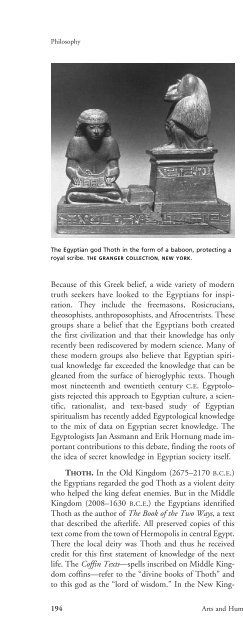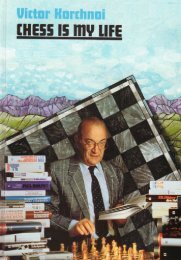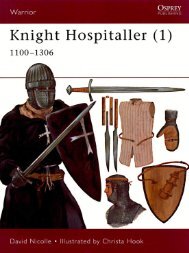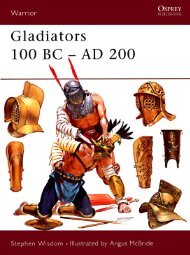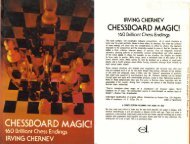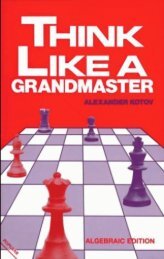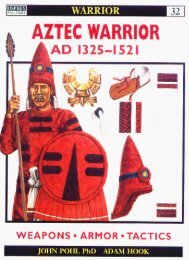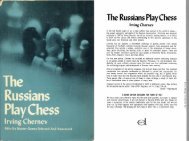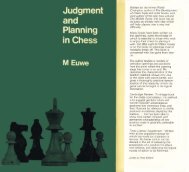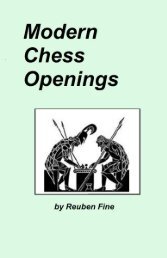Through the Eras
Edward Bleiberg ed., Ancient Egypt (2675-332 ... - The Fellowship
Edward Bleiberg ed., Ancient Egypt (2675-332 ... - The Fellowship
You also want an ePaper? Increase the reach of your titles
YUMPU automatically turns print PDFs into web optimized ePapers that Google loves.
PhilosophyEGYPTIANMagicThe Egyptian god Thoth in <strong>the</strong> form of a baboon, protecting aroyal scribe. THE GRANGER COLLECTION, NEW YORK.Because of this Greek belief, a wide variety of moderntruth seekers have looked to <strong>the</strong> Egyptians for inspiration.They include <strong>the</strong> freemasons, Rosicrucians,<strong>the</strong>osophists, anthroposophists, and Afrocentrists. Thesegroups share a belief that <strong>the</strong> Egyptians both created<strong>the</strong> first civilization and that <strong>the</strong>ir knowledge has onlyrecently been rediscovered by modern science. Many of<strong>the</strong>se modern groups also believe that Egyptian spiritualknowledge far exceeded <strong>the</strong> knowledge that can begleaned from <strong>the</strong> surface of hieroglyphic texts. Thoughmost nineteenth and twentieth century C.E. Egyptologistsrejected this approach to Egyptian culture, a scientific,rationalist, and text-based study of Egyptianspiritualism has recently added Egyptological knowledgeto <strong>the</strong> mix of data on Egyptian secret knowledge. TheEgyptologists Jan Assmann and Erik Hornung made importantcontributions to this debate, finding <strong>the</strong> roots of<strong>the</strong> idea of secret knowledge in Egyptian society itself.The story of Setne Khamwas was written in <strong>the</strong>Ptolemaic Period (332–30 B.C.E.). It tells <strong>the</strong> story of<strong>the</strong> struggle between Setne Khamwas and <strong>the</strong> magicianNaneferkaptah for possession of a book of magicwritten by <strong>the</strong> god Thoth. Naneferkaptah had taken<strong>the</strong> book with him to his grave. Setne Khamwas<strong>the</strong>n stole it from <strong>the</strong> tomb. This story and perhapso<strong>the</strong>rs like it no longer preserved possibly shaped <strong>the</strong>Greek view of <strong>the</strong> Egyptians as great magicians. Thestory stresses that mankind has access to magic, butonly <strong>the</strong> gods know <strong>the</strong> ultimate secrets of life. WhenSetne attempts to learn through magic more detailsabout <strong>the</strong> afterlife than should be available to peopleon earth, his children die. The gods punish him fortrying to know too much. Because Setne was exploringa book said to be written by Thoth, it connectswith Greek ideas that Egyptian magic stems from <strong>the</strong>god <strong>the</strong>y believed was Thoth’s equivalent in <strong>the</strong>ir ownculture, Hermes Trismegistus. Greek writers regularlymisinterpreted Egyptian stories to create a philosophycalled Hermeticism that <strong>the</strong>y believed was Egyptian,but in fact was a Greek misinterpretation of Egyptianculture.THOTH. In <strong>the</strong> Old Kingdom (2675–2170 B.C.E.)<strong>the</strong> Egyptians regarded <strong>the</strong> god Thoth as a violent deitywho helped <strong>the</strong> king defeat enemies. But in <strong>the</strong> MiddleKingdom (2008–1630 B.C.E.) <strong>the</strong> Egyptians identifiedThoth as <strong>the</strong> author of The Book of <strong>the</strong> Two Ways, a textthat described <strong>the</strong> afterlife. All preserved copies of thistext come from <strong>the</strong> town of Hermopolis in central Egypt.There <strong>the</strong> local deity was Thoth and thus he receivedcredit for this first statement of knowledge of <strong>the</strong> nextlife. The Coffin Texts—spells inscribed on Middle Kingdomcoffins—refer to <strong>the</strong> “divine books of Thoth” andto this god as <strong>the</strong> “lord of wisdom.” In <strong>the</strong> New Kingdom(1539–1075 B.C.E.) Thoth continued to develop asa god of culture and invention. The Egyptians regardedThoth as <strong>the</strong> author of many sacred writings. In <strong>the</strong> Bookof <strong>the</strong> Dead—spells meant to guide <strong>the</strong> deceased to <strong>the</strong>next life—<strong>the</strong> deceased identified himself with Thothand claimed that knowledge justified his entrance to <strong>the</strong>afterlife. Thoth was regularly <strong>the</strong> o<strong>the</strong>r gods’ scribe, responsiblefor divine documents, letters, and decrees. TheEgyptians now described Thoth as “lord of divinewords,” that is, <strong>the</strong> hieroglyphic writing system. Thothbecame responsible for regulating <strong>the</strong> calendar andmeasuring time. At <strong>the</strong> judgment of <strong>the</strong> dead, Thothrecorded <strong>the</strong> final verdict for each individual. In general,Thoth was increasingly viewed as <strong>the</strong> god who controlledknowledge and <strong>the</strong> recording of knowledge, and hencewas also <strong>the</strong> ruler of philosophy.THOTH AND AKHENATEN. Though King Akhenaten(1352–1336 B.C.E.) banned <strong>the</strong> worship of all godsexcept for Aten, <strong>the</strong> disc of <strong>the</strong> sun, his new capital atAmarna was located in Thoth’s home province. Perhapsfor that reason, a statue now excavated in Amarna showsa scribe sitting at Thoth’s feet recording his wisdom. The194 Arts and Humanities <strong>Through</strong> <strong>the</strong> <strong>Eras</strong>: Ancient Egypt (2675 B.C.E.–332 B.C.E.)


